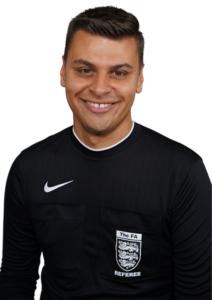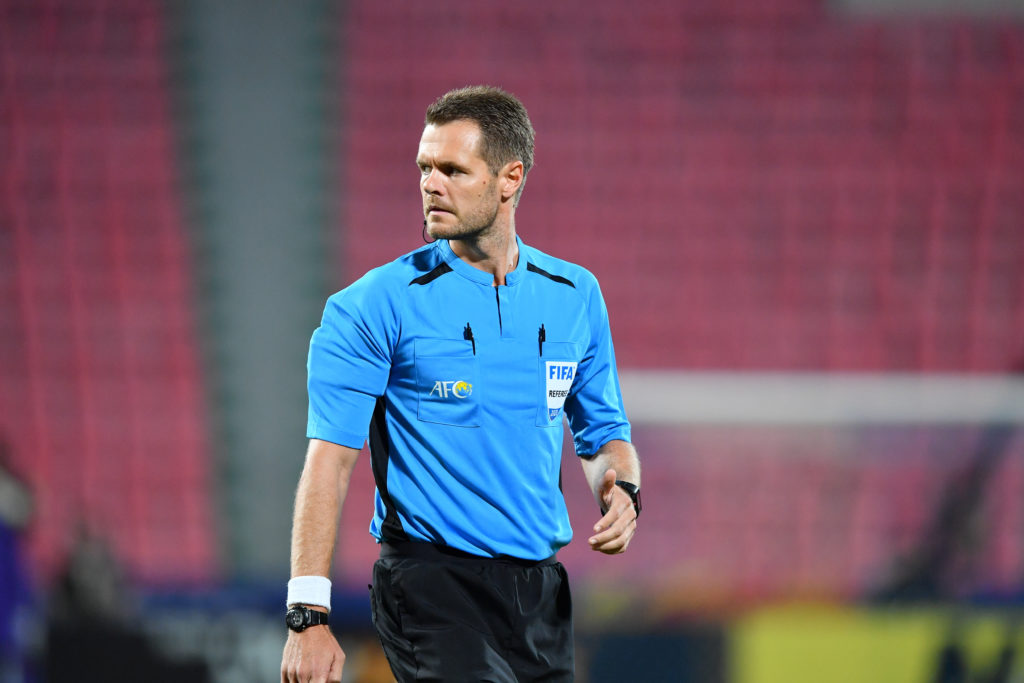Consistent preparation prior to blowing the first whistle in a game is a key influence on the actual performance that you deliver on the field of play. From a mental perspective it’s worth remembering: Consistent preparation = consistent performance.
Knowing that your pre-match preparation has such consistency to it that you’ll always deliver yourself across the white line in absolutely the ideal mental state to perform, is a great element of your performance armoury. Consider the position of strength you’ll be in knowing no matter what the circumstances, conditions, venue, or playing teams, you’ll always be mentally 100% ready to deliver everything that’s available to you on any given day. You can see how ultimately that the more challenging the circumstances you faced, the more confident you’d become that you’d be able to deliver more effectively than your colleagues.
There is no guarantee that you’ll wake up on the morning of your appointment feeling absolutely 100% or that the conditions you’ll be face will be 100% ideal. Therefore, knowing that even if this is the case, you’ll be able to go through your tried and tested pre-match routine, will bring a great sense of confidence and control to you.
So, what’s your current level of confidence in your pre-match routines?
- Are you leading in your consistency of mental preparation?
- Has your consistency of pre-match mental preparation reached a peak or are you still improving in terms of the level of control you achieve every fixture that you officiate?
- Is there any chance that colleagues prepare better than you in the lead up to matchday and deliver themselves out to the middle more ready to referee and more likely to deliver relative to their potential?
Begin With The Start in Mind
How do you know your pre-match routine works for you? Consider the following questions:
- What is your ideal mindset?
- How do you like to be feeling?
- What do you know you need to be thinking about?
- How does this critical period set you up to get into the mental rhythm of officiating that you need?
- How often would you say you get the ingredients absolutely 100% spot on for you?
If you know the answers to the questions, then the next question to consider is:
“How confident are you that you can create this mindset, these feelings and thoughts every time, through your pre-match build up?”
The more confident you can be that you’ll always be standing on the pitch completely focused in the right way to deliver a great performance, the more you’ll know you’re going to produce a great performance every time you have a flag or whistle in your hand. No hoping and wishing – just knowing!
Did You Think as You’d Intended?
Throughout fixtures you’re very used to reviewing whether you delivered and executed the required technical decisions. You’ll benefit hugely from being able to determine whether you “thought the way you intended to think”, both prior to the match starting and during the game. From a completely bias perspective as a Mental Toughness Practitioner and Resilience Trainer, it’s my view that before you review technical components of a fixture, you need to have determined whether you mind was working in the best way possible for you.
If you haven’t delivered the ideal thinking approach, chances are technical execution will be affected. There’s very little point simply focusing on those areas when your thoughts or focus might be responsible for the slightly off-key performance. Equally, if you’re 100% sure that your mind was totally in the right state before and during the match, then any inconsistencies in technique and execution can be looked at with much greater confidence that there has been no mental reason for any drop-off.
Get in Control, Stay in Control
Ok, back to the field of play and delivering yourself there in the best possible mental shape to perform the way that you want to. One concept that is very useful to consider is that of control, and more accurately, the sense that you are in control of what you’re doing and how you’re doing it.
When it comes to performing on the green bit, when you’re really firing on all cylinders, chances are you feel fully in control. Chances are you feel totally in control of every decision you have to make.
From a psychological momentum perspective, you can maximise the chances of being in control by working on the concept of being in control prior to the game. From the moment you wake up on matchday, you can think get a theme of being in control going. Just as you’re going to choose how you will referee the game and get into the zone, controlling your actions, you can get a great sense of effective pre-match preparation by knowing what the choices are that you can make in the build up that will help you to feel as positive and prepared as possible.
This concept of control and choosing what you want to do is usually demonstrated really effectively in the pre-match warmup, choosing exactly how you want to physically and mentally put the finishing touches to your preparation. The pre-match discussion will also take place at a pre-determined time of your choice, so you control when it happens and the kind of things you’ll focus on for the officiating team. From an individual perspective it’s important that you have your own matchday concoction of choosing to do the right things that put you in control and keep you in control.
- What choices can you make that you know will help prepare you mentally in a consistent manner?
- When do you choose to carry out some pre-match visualisation on your own to reinforce the blueprint of success one more time?
- When do you get your music on and listen to the ideal sounds to get you ready? When do you use it to chill you out?
- When do you look over the gameplan one more time so that you get excited about finding out how well you’re going to execute it today?
All common sense questions and all common practices for most referees. You’re all pretty much at the top of your game and will have great ways of preparing for fixtures that help to get the mind and body in absolutely great shape to officiate.
The point of the questions above is to get you thinking about the consistency with which you apply your pre-match build up strategies and to get you think specifically about how well you’re controlling your mind and choosing your thoughts to help deliver a great performance when it really matters.
The more you can get in control prior to the game, then more likely you are to be in control during the match. So, the fixture starts before the first whistle is blown. If you can get in control more consistently than your colleagues in their games, prior to kick off, you can stand on the field of play feeling a sense of advantage in the knowledge that you’re more ready, have more ability and have more motivation to deliver games successfully.
Whether training and preparing for a 2k run, getting ready for a fitness test, or refereeing a fixture, your mental management of the build up can make a critical, final difference to how much you exploit the opportunity and take control of a key match incident. With enough practice of your pre-match routine, you should be able to be 100% sure that there will never be a psychological factor that leads to an underperformance.
At The Third Team I work individually and in collaboration with different professionals where I have developed workshops and 1-2-1 sessions associated with Resilience and Mental Toughness Development to help referees. The workshops and 1-2-1 sessions are interactive, where referees are encouraged to open up and share their experiences to help themselves and each other.
Feel free to contact me if you’d like to know more about my workshops or 1-2-1 sessions and how I could help you or your officials.
Best Wishes,

Nathan Sherratt
Referee Educator & Managing Director of The Third Team

Nathan Sherratt
Nathan Sherratt, Referee Educator, Resilience Trainer and Managing Director of The Third Team. A Mental Toughness Practitioner based in County Durham, North East England.

